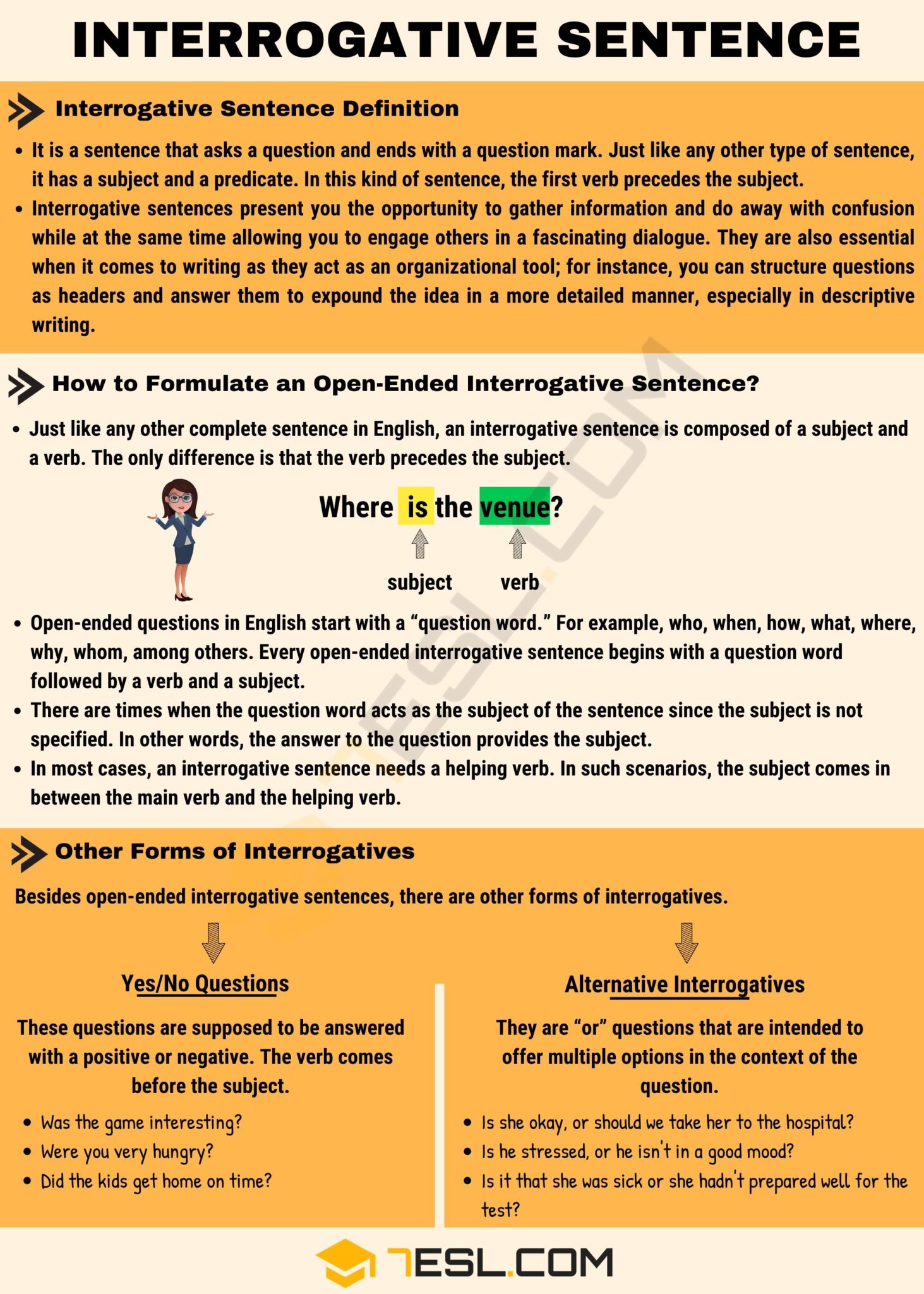What is an interrogative sentence? In this article, you will learn the definition and examples of interrogative sentences in English. You will also learn other forms of this type of sentence in English grammar.
Interrogative Sentence
Interrogative Sentence Definition
What is an Interrogative Sentence?
It is a sentence that asks a question and ends with a question mark. Just like any other type of sentence, it has a subject and a predicate. In this kind of sentence, the first verb precedes the subject.
Interrogative sentences present you the opportunity to gather information and do away with confusion while at the same time allowing you to engage others in a fascinating dialogue. They are also essential when it comes to writing as they act as an organizational tool; for instance, you can structure questions as headers and answer them to expound the idea in a more detailed manner, especially in descriptive writing.
How to Formulate an Open-Ended Interrogative Sentence?
Just like any other complete sentence in English, an interrogative sentence is composed of a subject and a verb. The only difference is that the verb precedes the subject. An example of this is:
- Where is the venue?
Here “venue” is the subject, and “is” is the verb. The verb preceded the subject in a straightforward question.
Open-ended questions in English start with a “question word.” For example, who, when, how, what, where, why, whom, among others.
Every open-ended interrogative sentence begins with a question word followed by a verb and a subject. Here are more examples of open-ended interrogative sentences:
- Where is your dad?
- Why didn’t you go to school?
- How old are you?
- When was the last time you visited your grandmother?
- Whom are you referring to?
- Who are you staring at?
There are times when the question word acts as the subject of the sentence since the subject is not specified. In other words, the answer to the question provides the subject. For example:
- Whose books are these?
- To whom shall I hand over the badge?
- Which is the shortest route to England?
- Who is the best prayer in the English premier league?
In most cases, an interrogative sentence needs a helping verb. In such scenarios, the subject comes in between the main verb and the helping verb. For instance:
- Why did James wake up very early?
- Where did I keep my wallet?
- Why was she ill-tempered yesterday?
- When did he start attending music lessons?
In the first sentence, the subject “James” is fitted in between the helping verb “did” and the main verb “wake up.” This is usually the case with direct questions.
Other Forms of Interrogatives
Besides open-ended interrogative sentences, there are other forms of interrogatives.
Yes/No Questions
These questions are supposed to be answered with a positive or negative. The verb comes before the subject. For example:
- Was the game interesting?
- Were you very hungry?
- Did the kids get home on time?
Alternative Interrogatives
They are “or” questions that are intended to offer multiple options in the context of the question.
For example:
- Is she okay, or should we take her to the hospital?
- Is he stressed, or he isn’t in a good mood?
- Is it that she was sick or she hadn’t prepared well for the test?
Interrogative Sentence Infographic








0 Comments